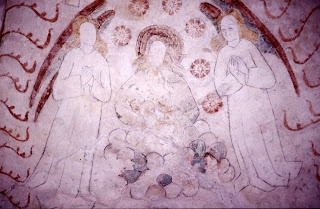Augustine's "De Musica"

De Musica is an early work of Augustine, consisting of six books - the last of them written after his baptism in 391. It is a treatise of numbers, movement, rhythm and measure more than that of music (in the sense we understand the word). Initially Augustine aimed to dedicate a book to all the liberal sciences. However, the only accomplished works came to be De Musica and De Dialectica. The vision behind these books was a prominently Neo-Platonist one: through the study of these sciences that belong to the physical world, one could arrive at the incorporeal reality of God ( per corporalia cupiens ad incorporalia quibusdam quasi passibus certis vel pervenire vel ducere ). De Musica was a highly influential textbook throughout the Middle Ages. All subsequent authors on musical theory – Cassiodore, Boethius as well as Isidor – relied upon Augustine in a way or another. At the outset Augustine defines music in as scientia bene modulandi . This idea is difficult to translate c...


